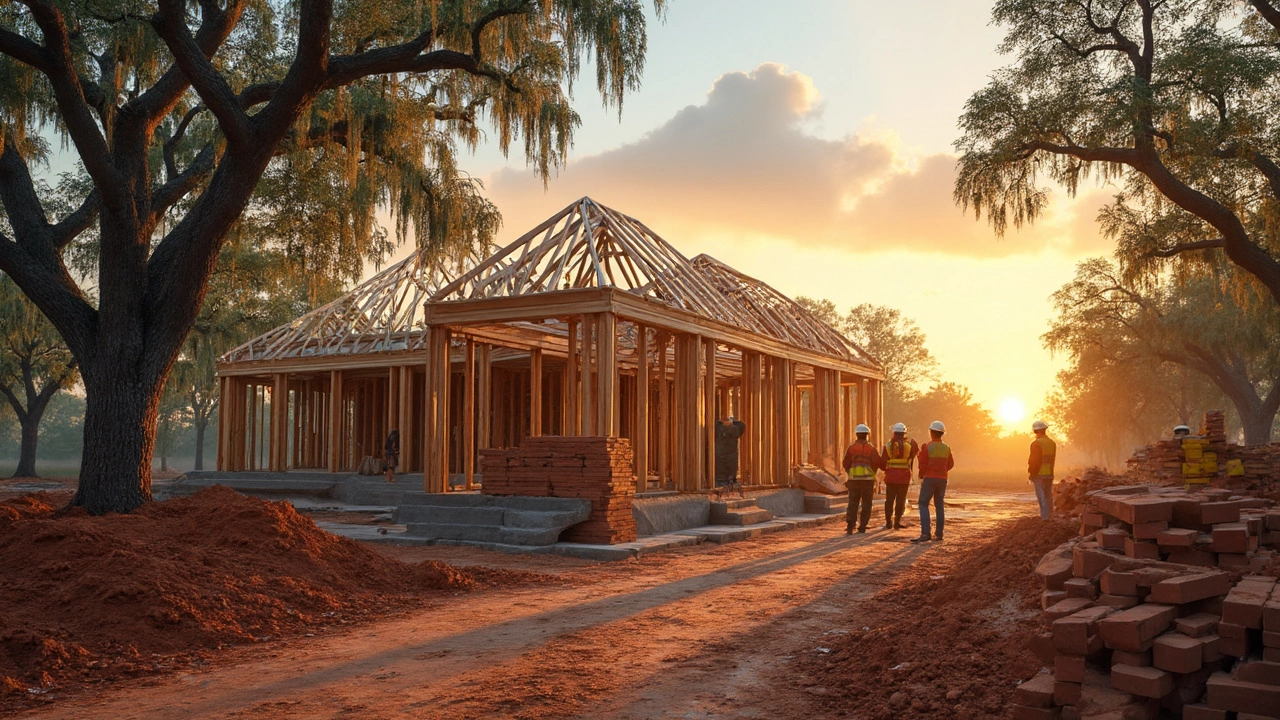New Construction in Louisiana – What You Need to Know
If you’re thinking about building a house or a small extension in Louisiana, you’ll quickly see that the process looks a lot like it does elsewhere, but the local climate and rules add their own twist. The hot, humid summers, occasional hurricanes, and the state's strict building codes mean you have to plan ahead, pick the right materials, and stay on top of paperwork. Below is a straightforward look at the most important steps, so you can avoid costly surprises and keep the project moving.
First off, understand that Louisiana is a high‑risk zone for moisture and wind. That affects everything from the foundation to the roof. A solid slab or pier‑and‑beam foundation that can handle shifting soils is a must. Likewise, you’ll want roof decking that meets the state's hurricane‑resistance standards. Ignoring these details early on can lead to leaks, mold, or even structural damage down the road.
Permits and Regulations
The first thing you’ll do is visit your local building department. They’ll tell you which permits you need, whether you’re in a floodplain, and what zoning rules apply. In many parishes, you’ll need a coastal construction permit if your site is within a certain distance from the Gulf. The paperwork usually includes site plans, structural calculations, and a list of approved materials.
Don’t skip the inspections. After the foundation is poured, an inspector will check the footing depth and reinforcement. Once the frame is up, another inspection verifies that the walls and roof meet the required wind‑load standards. Getting these approvals on time keeps the schedule tight and prevents fines.
Remember to ask about energy‑efficiency requirements. Louisiana has adopted the 2021 International Energy Conservation Code, which means you’ll need proper insulation, sealed windows, and efficient HVAC systems. Meeting these rules not only satisfies the law but also saves you money on utility bills.
Choosing Materials and Contractors
When picking materials, think about moisture resistance. Pressure‑treated lumber, steel studs, and concrete blocks all hold up well in damp conditions. For exterior siding, fiber‑cement or treated wood works better than plain plywood, which can warp. And for roofing, metal shingles rated for 130+ mph winds are a safe bet.
Finding a good contractor is just as critical as choosing the right brick. Look for a company that’s licensed in Louisiana and has experience with hurricane‑zone builds. Ask for references from recent projects, and check online reviews for reliability. Getting at least three quotes helps you compare prices, but the cheapest offer isn’t always the best—make sure the estimate includes all the work, permits, and cleanup.
Before signing a contract, read the payment schedule. Most builders ask for a deposit, then staged payments as milestones are reached. Keep a copy of every change order; the more paperwork you have, the easier it is to resolve disputes later.
A solid budget includes a 10‑15% contingency for unexpected costs. Weather delays are common in Louisiana, especially during hurricane season, so have a plan for protecting the site if a storm hits. Temporary coverings, proper drainage, and securing loose materials can save you from major setbacks.
Finally, protect your investment with appropriate insurance. Builder’s risk coverage protects the structure while it’s under construction, and general liability covers third‑party injuries. Talk to your insurer early to make sure you have the right policies in place.
Building in Louisiana can feel like a lot of moving parts, but breaking it down into permits, material choices, and contractor management makes it manageable. Keep the checklist handy, stay on top of inspections, and choose partners who understand the local climate. With that approach, your new build will be safe, comfortable, and ready to weather whatever comes next.

